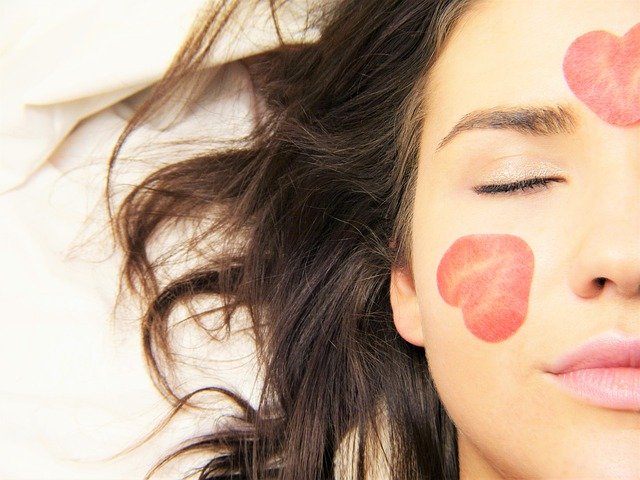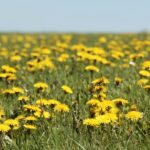Spring pollens not only bring about respiratory allergies, but as the weather turns warmer, skin allergies like eczema start flaring up as well. Eczema (or atopic dermatitis) falls under the category of Vicarcikā (vi – char – chi – kaa) in Ayurveda. Besides the word rolling off your tongue, vicarcika is also a common skin problem in many children and adults alike.
Vicarcikā is defined as a spreading type of skin eruption with itching and scabs. It tends to occur in the heat of summer, when the skin gets inflamed and rashes, acne, psoriasis, and eczema flare up. The excess heat accumulated in the body causes Pitta (the fire element) to increase out of balance and overflow in the circulation. The body tries to eliminate the buildup of toxins through the skin, causing rashes to form. If you pay close attention, you might recognize some of these symptoms as a warning that eczema is coming soon: changes in sweating patterns, rough and discolored skin, itching, numbness, mild burning, and a feeling of fatigue.
Allopathic medications only treat the symptoms of eczema without correcting the underlying cause, while Ayurveda uses diet, lifestyle and herbs to support the body’s innate ability to heal itself.
Allopathic medicines used to treat eczema, such as corticosteroids and immuno-biologic agents, can cause serious side effects like high blood pressure, kidney problems, and increased risk of skin cancer. Moreover, allopathic medications only really treat the symptoms of eczema without treating the underlying cause of vitiated Pitta. The Ayurvedic approach, on the other hand, uses diet, lifestyle and herbs to support the body’s innate ability to heal itself while boosting immunity and clearing the blood and liver.
The ayurvedic keys to treating eczema and restoring doshic balance are to follow a healthy diet and lifestyle and to take a Pitta-pacifying herbal regimen. By making the simple changes outlined below, your skin, or your child’s skin, can be made beautiful once again!
FOLLOWING A HEALTHY DIET & LIFESTYLE:
1. Avoid consumption of heating spices – like black pepper, chili powder, sesame seeds/oil, and dry ginger powder. Fresh ginger is fine to eat.
2. Avoid excessively salty & sour foods – which increase Pitta
3. Avoid incompatible food combinations – like combining dairy with grains, fruits & vegetables, or meats & seafoods
4. Eat cooked and easily digestible foods – eats lots of fresh vegetables like cucumbers, cilantro, squashes, snake gourd, and coconut, and eat sweet fruits, too (not sour). Also eat bitter vegetables like bitter gourd and fenugreek leaves, which help lower Pitta.
5. Eat older grains and pulses, which are lighter and easier to digest – new grains have a higher water content and are heavy to digest. Eat plenty of mung dhal, barley, basmati rice, and wheat (except in gluten intolerant individuals).
6. Avoid anger and mental stress – take an evening walk in the moonlight, do sheetali (like sucking through a straw) breathing, listen to a favorite podcast, say a positive mantra or affirmation, meditate, take sacred pauses throughout the day to collect yourself, journal, have a gratitude practice, or find other ways to cultivate patience, tolerance, and kindness.
7. Avoid excessive sun exposure or overheating the body – take a cool shower immediately after working out, and wear comfortable, protective clothing when out in the sun
8. Avoid alcohol, excessive caffeine, and carbonated drinks – drink 6 to 8 cups of warm water with a splash of lime (which is cooling, unlike lemon) or drink caffeine-free chai with cardamom in it.
9. Don’t withhold natural urges – by all means, use the bathroom, sneeze, burp and don’t hold urges in on any account!
10. Avoid exposure to allergen triggers and unwanted chemicals – anything that can aggravate eczema should be kept at bay, including pollens, plants, medications, etc. Use fragrance and dye-free laundry detergents, shampoos and soaps.
HERBAL REMEDIES FOR ECZEMA:
Ayurvedic herbs which lower Pitta and are helpful for treating eczema and other skin conditions are Neem, Aloe vera, Amalaki, Rose, Sandalwood, and Licorice. Topical preparations of one or more these herbs in coconut oil are also beneficial. Eating fresh ginger and turmeric is always good to clear toxins and maintain good digestion. A topical paste made of Neem, Turmeric, Aloe vera and Tea tree oil can be applied to lesions and covered up with gauze and medical tape. Be careful – turmeric is a wonderful anti-inflammatory herb but can stain your clothing and surroundings yellow! Finally, blood and liver purifiers such as Manjishta, Saariva, Triphala, Punarnava, and Bhringaraj, get to the source and root out eczema or atopic dermatitis. While ayurvedic herbs are considered safer than allopathic medications, they may still have side effects; long-term use is not recommended without consulting an ayurvedic practitioner. For severe, long-standing eczema skin conditions, you may need to undergo Panchakarma (purification) therapy under the guidance of an experienced ayurvedic practitioner, which may include purging, sweating, and medicated ghees, and other therapies.
Listening to and attending to our bodies’ needs from the inside out using an ayurvedic approach can be effective for treating any ailment. Following a Pitta lowering diet and lifestyle and using Pitta-pacifying herbs can slowly but surely clear out eczema skin rashes for good, so you can look and feel your best this summer season. Wishing you many blessings as always!
Uma Hingorani
Ayurvedic Practitioner, Ashoka Holistic Ayurveda, LLC
REF:
1. Eczema: Causes, Ayurvedic Treatment, Medicines, Remedies (easyayurveda.com)
2. Vicarcika, Vicarcikā: 7 definitions (wisdomlib.org)
3. Eczema – Atopic Dermatitis – Center: Symptoms, Treatments, Causes, and Tests (webmd.com)
4. Baby’s eczema ‘cured’ by £7 Lush body cream, mother claims | The Independent | The Independent




